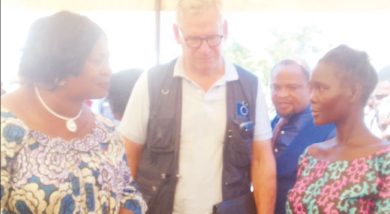Escom seeks 10% Tariff increase
Power utility Electricity Supply Corporation of Malawi (Escom) has proposed for consideration by Malawi Energy Regulatory Authority (Mera) a 10 percent increase in electricity tariffs, but consumers have described the pending hike as unacceptable.
In a published statement yesterday, Mera said the tariff adjustment proposal would be considered after assessing Escom’s performance against the agreed key performance indicators (KPIs) and findings of the annual regulatory audit.
The Mera statement reads in part: “The 2021/2022 fiscal year is the fourth and final year of implementing the 2018-2022 [Escom] base tariff and a 10 percent base tariff adjustment will be considered.

“When [the assessment is] finalised, Mera will communicate the outcome of Escom performance assessment as well as the determination on the fourth base tariff tranche.”
In an interview last evening, Mera consumer affairs and public relations manager Fitina Khonje said there are KPIs on service quality to be achieved through investments and others relating to revenue performance.
She said the financial KPIs include current ratio and acid test, trade payable, interest coverage, collection efficiency, maintenance costs as a percentage of operational costs and net surplus as a percentage of revenue.
On the other hand, the non-financial KPIs cover areas of connection targets, system losses and transmission interruption indices.
Reacting to the proposal in an interview yesterday, Consumers Association of Malawi (Cama) executive director John Kapito said Escom did not deserve an upwards tariff adjustment because it did not meet some of its KPIs.
He said: “For instance, consumers are still unable to be connected to electricity and if they get connected, it is at an unaffordable cost. What’s the point in continuing with a tariff base where the supplier has failed to perform?
“Let Mera come out publicly and engage the consumers that came up with the agreed KPIs on how Escom has performed to be awarded another tariff. Otherwise, this tariff adjustment is an insult to consumers. As consumers, we say a big no to this proposed increase.”
Earlier, Parliamentary Committee on Natural Resources chairperson Welani Chilenga said Parliament wanted Mera and Escom to suspend electricity tariff increase on the basis that Malawians were passing through tough economic times due to the Covid-19 pandemic.
He also said his committee wanted Mera and Escom to apologise to Malawians for subjecting them to high electricity tariffs.
Chilenga warned that his committee would push for the amendment of the Electricity Act which gives powers to Mera and Escom to adjust prices based on the Automatic Tariff Adjustment Formula (Ataf), saying it infringes on economic rights of the end users.
Under the 2018-2022 Escom Base Tariff Schedule, Mera in October 2018 approved a 31.8 percent base tariff for the four-year period.
The implementation of the base tariff was segmented into four annual tranches of 20 percent, 7.2 percent, negative three percent and 10 percent tariff adjustments for the first, second, third and fourth years in that order.
The 20 percent tariff increase for the first year translated into an average tariff hike of K88.02 per kilowatt hour (kWh) up from K73.23 per kWh.
In February 2020, Escom qualified for 1.65 percent instead of seven percent of the second tranche of the base tariff based on performance on the agreed KPIs. Mera awarded a further 5.63 percent based on Ataf, making a total of 7.28 percent tariff adjustment. However, the tariff increase was not implemented immediately.
On the other hand, the planned three percent tariff reduction of the base tariff in the third year was premised on the planned decommissioning of the Aggreko diesel generators which were procured by government on an emergency basis to feed 78 megawatts (MW) of power into the Escom grid.
However, the power supply contract for Aggreko was extended after mostly solar-powered Independent Power Producers (IPPs) failed to beat the roll-out deadlines to fill the power supply gap that would have been created by the decommissioning of Aggreko diesel generators.
In March 2021, Mera approved a 10.62 percent electricity tariff increase, comprising 4.9 percent revenue recouping adjustment due to non-implementation of a tariff increase that was approved in February 2020 and 5.72 percent being the Ataf outcome. The 10.62 percent tariff adjustment effected in February moved the average tariff from K94.43 per kWh to K104.46 per kWh and was implemented with effect from March 30 2021.





